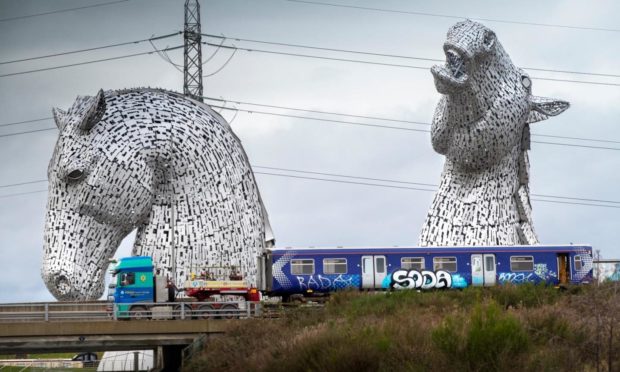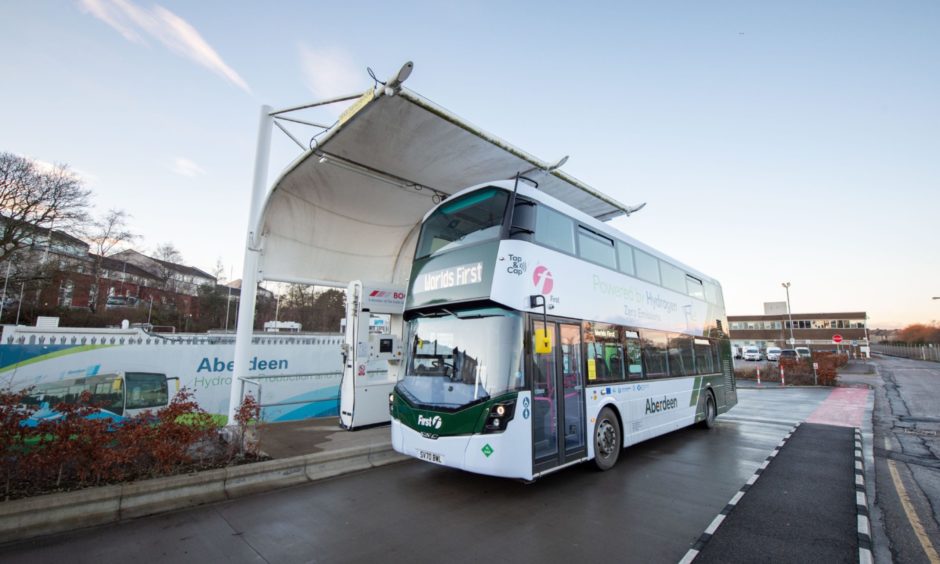Scottish ambitions to unveil a market-ready hydrogen train in time for the COP26 climate summit in Glasgow have received a major boost.
Rolling stock asset manager Angel Trains has climbed aboard the project, committing expertise and a £500,000-plus investment in green hydrogen refuelling infrastructure.
Angel Trains has previously offered technical advice, and parts and equipment.
This is now being extended to also include technical, commercial and sustainability expertise for the net-zero carbon emission train project, which also involves cell integration specialist Arcola Energy and rail industry consortium partners.
The new Scottish hydrogen train will bring cutting-edge technologies to life.”
Matthew Labuda, Angel Trains
Public bodies backing the initiative include Transport Scotland, Scottish Enterprise (SE) and St Andrews University.
Angel Trains chief executive Malcolm Brown said: “We are proud to be partnering with Arcola Energy and its consortium partners to offer our technical support and expertise.
“The project will enable cleaner and greener travel, bringing us one step closer to reaching the government’s net-zero target.
“We are excited to extend our involvement in this innovative new venture and look forward to collaborating with our industry partners, Scotland’s universities and government to accelerate the decarbonisation of the rail industry.”
Angel Trains aims to offer” industry insights into traction options” for new as well as converted rolling stock.
‘Exciting opportunity’
Matthew Labuda, head of customer service in the north for London-based Angel Trains, said: “It’s an exciting opportunity for us to work with our industry partners and support Scottish innovation.
“At a time when the world’s focus will be on COP26 in Glasgow, the new Scottish hydrogen train will bring cutting-edge technologies to life, whilst enhancing the passenger experience and progressing the government’s green agenda.”
Arcola chief executive Ben Todd said: “We have very much enjoyed working with Angel Trains on the project and are delighted they have chosen to deepen their collaboration.
“As a leading rolling stock asset manager, Angel’s involvement will support the project’s ambition to be the first zero-emission train offering a holistic and sustainable well-to-wheel perspective.”
St Andrews University chemistry professor John Irvine said: “The Scottish Hydrogen Zero Emission Train project is a great example of the collaboration we aim to foster.
“In order to scale up the deployment of zero-carbon and zero-emission technologies, it is imperative that commercial organisations who are making decisions about long-term assets are informed and motivated to make the right decisions for the future.
“It is both encouraging and very welcome to have Angel Trains actively engaging in this.”
Prof Irvine is the chairman of Scotland’s hydrogen accelerator, which has brought together public bodies, industry, research organisations, and higher and further education institutions to co-ordinate the design and delivery of hydrogen projects north of the border.
135 jobs for Dundee
Earlier this year London-headquartered Arcola announced it was to open an engineering and manufacturing facility in Dundee after securing a £1.5 million grant from SE.
The move is expected to bring up to 135 jobs to the former Michelin site in the city over a three-year period.
A first phase of the Dundee development is expected to bring in around 20 employees to support the train project and product development for hydrogen-powered vehicles, with the remainder being recruited over the next three years as Arcola expands production at the site.
Arcola also has a rail engineering facility at the Bo’ness and Kinneil Railway and plans for a service centre in Glasgow.
The new train will further bolster Scotland’s green energy credentials, following the unveiling last October of the world’s first hydrogen-powered double-decker bus in Aberdeen.
Costing £500,000 each, a fleet of hydrogen-powered buses in the Granite City are funded by Aberdeen City Council, the Scottish Government and the European Union.
The city council has also approved plans for a hydrogen “hub”, being developed with organisations including SE and Opportunity North East, which will use nearby offshore wind resources to kick-start the nascent hydrogen industry.
In addition, Aberdeen is to be the home base for an ambitious project, called Dolphyn, to create the “world’s first” offshore floating facility to produce green hydrogen – produced using renewable power to convert water through the process of electrolysis.
Plans launched for a ‘world-leading’ green hydrogen hub on the Cromarty Firth

